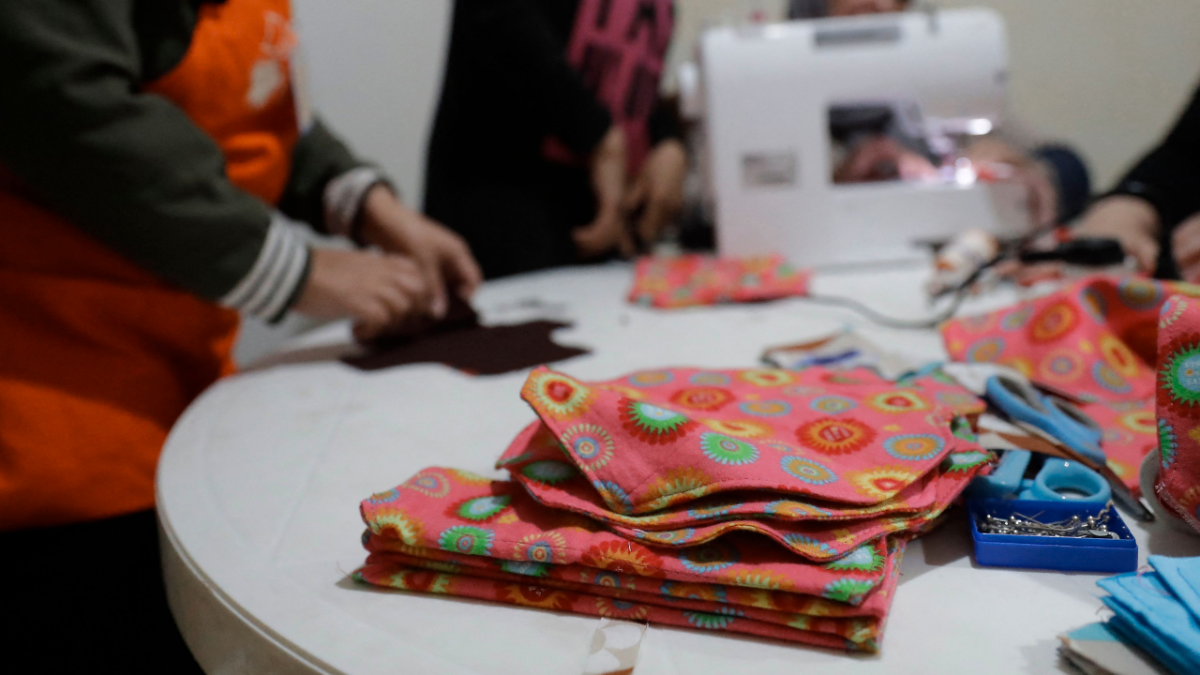Every month, girls and women in displacement camps encounter a common challenge – one that is a natural occurrence but doesn’t fail to disturb their daily lives, making it harder to do almost everything including queuing for meals and participating in social life.
According to Samara Atassi, CEO and co-founder of Souriyat Across Borders, declining access to menstrual hygiene products and facilities can pose a massive barrier to the participation of displaced girls and women in numerous activities, such as training programmes.
Problems Keep Piling Up
- With a growing shortage of such products and facilities in the camps, girls and women are often compelled to take up serious unhygienic practices, such as using sand, leaves or dirty rags to manage their periods, Arab News quoted Atassi as saying.
- An additional challenge comes in the form of social stigma and embarrassment, leading to isolation and putting greater stress on their mental well-being. Moreover, overcrowded camps in particular can lead to a lack of privacy, also impacting their mental health.
- But problems don’t end here. Issues such as inadequate access to clean water and hygiene facilities worsen the situation. These conditions increase the risk of infections and numerous different health problems, said Sahar Yassin, Oxfam MENA regional gender advocacy adviser.
Period Poverty Putting Lives At Risk
The term refers to a lack of access to menstrual products, waste management, hygiene facilities, education, or a combination of these. While period poverty affects almost 500 people globally, the impact seems to be greater felt by those living in the camps.
According to the UN Refugee Agency, girls and women represent about half of any displaced or stateless population. At the end of 2021, the MENA region accounted for 16 million forcibly displaced and stateless people, with Yemenis and Syrians representing the highest portion.
But the reproductive health of displaced girls and women continues to grab the attention of just a handful of donors. A survey by UNHCR in 2019 found just 55% of women’s requirements were met with regard to menstrual products.














